Wildflower Program
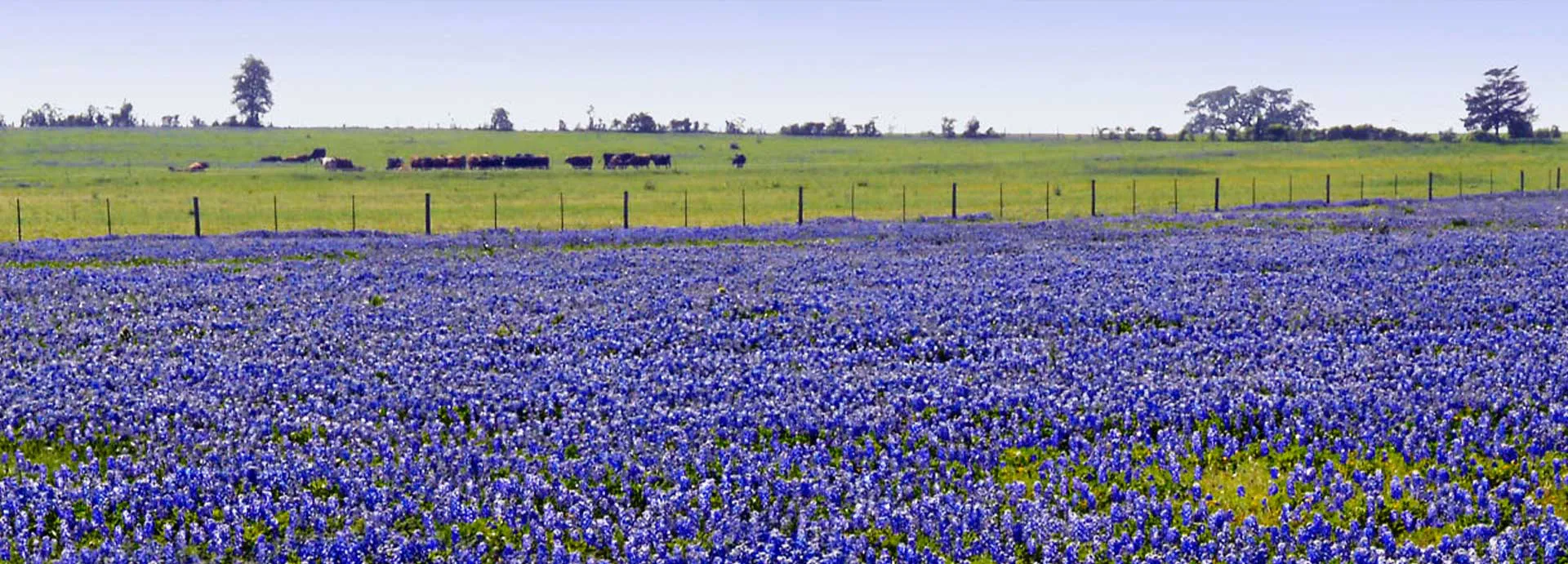
Planting Bluebonnets and other native wildflowers
More than 5,000 species of wildflowers along with native grasses flourish along our state's roadsides, thanks to nature and attention from TxDOT.
TxDOT's Wildflower Program not only helps our highways look good but also reduces the cost of maintenance and labor by encouraging the growth of native species that need less mowing and care.
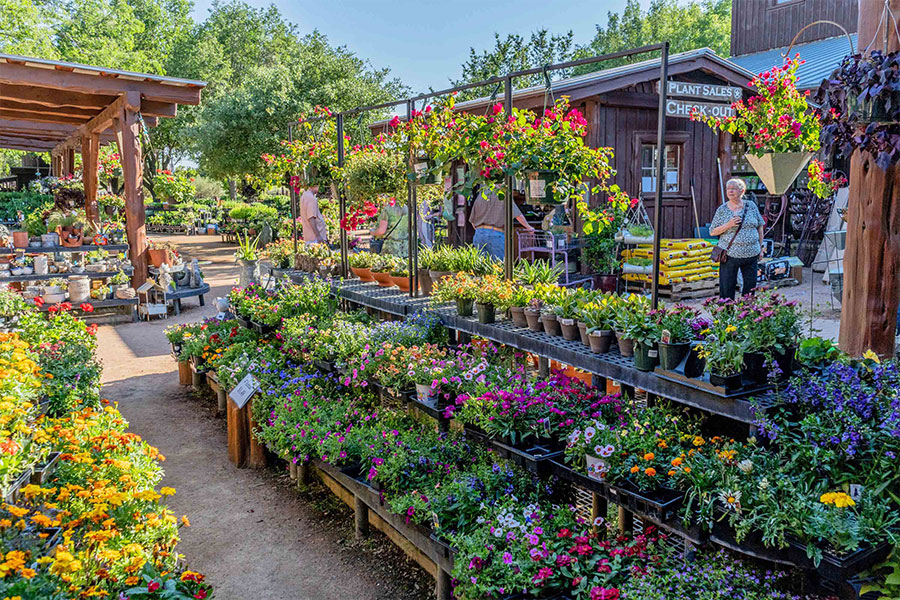
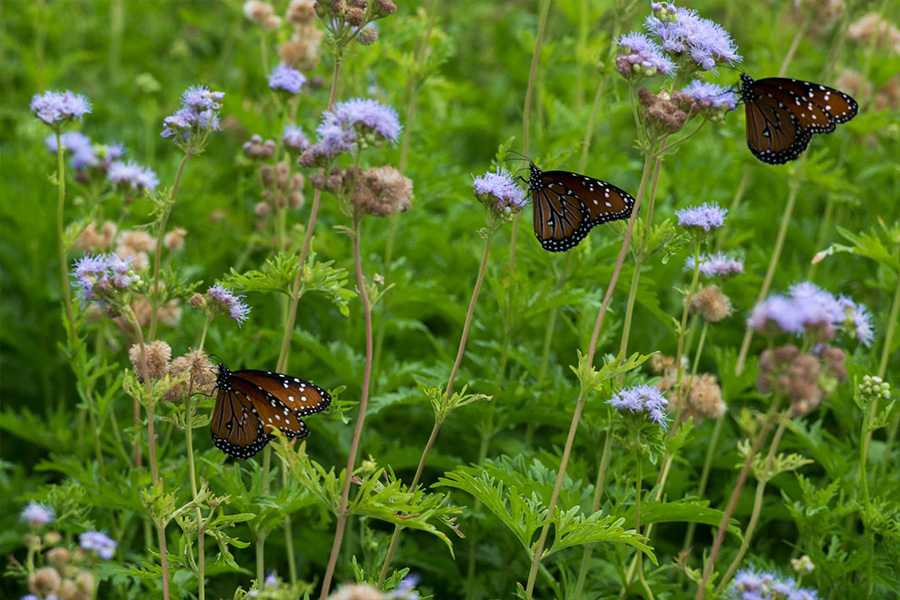
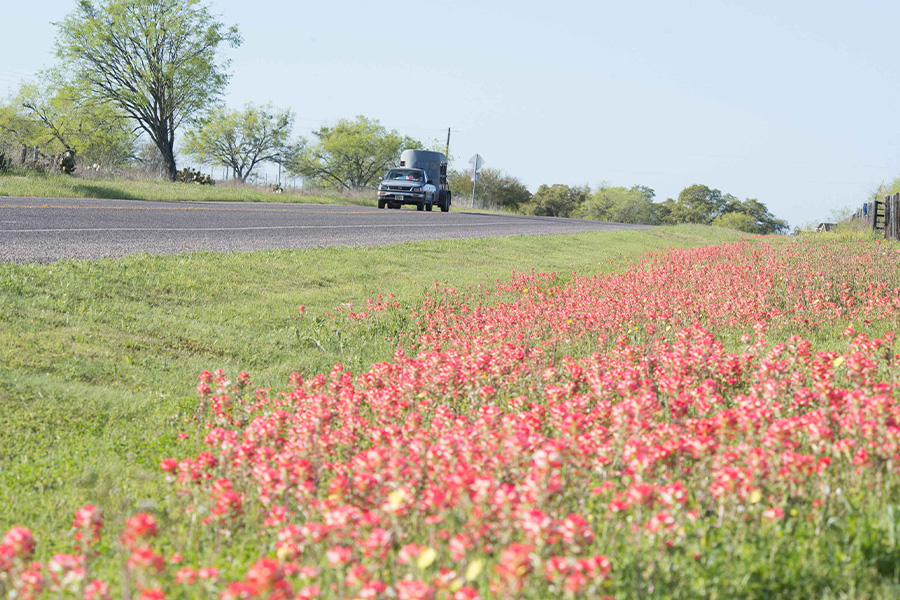
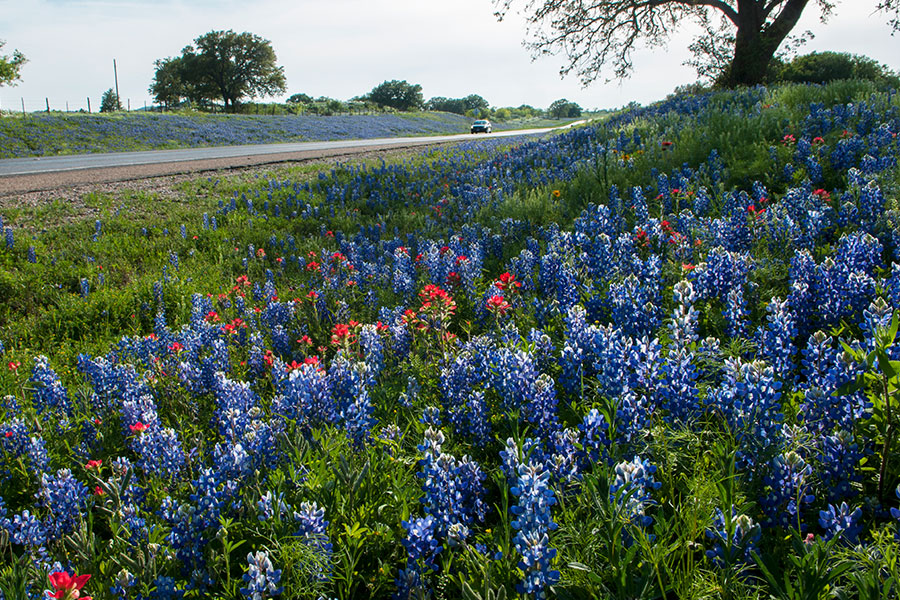
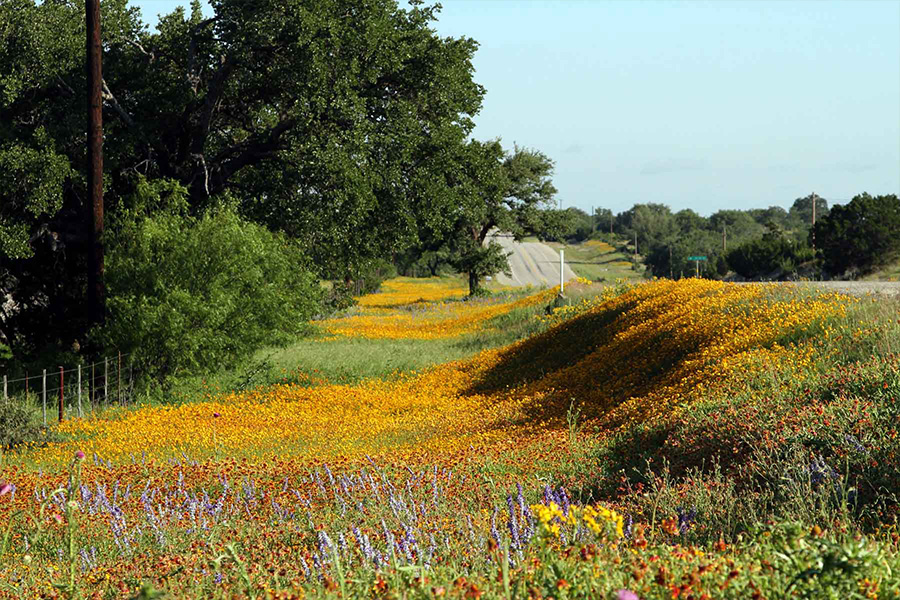
Environmental benefits
As with grasses, Wildflower Program initiatives strive to establish roadsides that blend into their surroundings. The grasses and wildflowers also help to conserve water, control erosion, and provide a habitat for wildlife in all the natural regions of Texas.
History
Shortly after the Texas Highway Department was organized in 1917, officials noted that wildflowers were among the first vegetation to reappear at roadside cuts and fills. In 1932, the Texas Highway Department hired Jac Gubbels, its first landscape architect, to maintain, preserve, and encourage wildflowers and other native plants along rights of way.
By 1934, department rules delayed all mowing, unless essential for safety, until spring and early summer wildflower seasons were over. This practice has stayed in place for more than 60 years and has expanded into today's full-scale vegetation management system.
Today
Maintenance techniques used to encourage wildflower growth include safety, or strip mowing, which allows the wildflowers to bloom and native grasses to emerge.
TxDOT buys and sows about 30,000 pounds of wildflower seed each year. The peak wildflower blooming season draws tourists from all across the nation to see the color unfold each spring.
Your responsibility
TxDOT is pleased with the attention wildflowers attract; however, we discourage picture-taking that damages the flowers. If too many wildflowers are trampled, they will die and not go to seed. Since many of these flowers are annuals, this means they have to go to seed to come back the next year. Naturally, we discourage picking the flowers for the same reason.
The Wildflower Program is part of good stewardship. Today, TxDOT not only plants and enhances wildflower areas, but more importantly protects and maintains the investment made in years past.